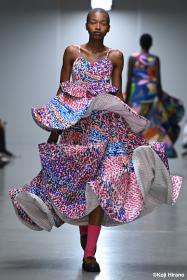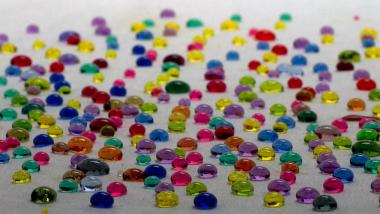Turning post-consumer textile waste into new garments for Dutch Retailer Zeeman
A closed-loop recycling project has successfully transformed 24 tons of post-consumer textiles into nearly 50,000 garments for Dutch retailer Zeeman, with each product containing a high-rate of 70% recycled content. This achievement represents a major milestone in accelerating textile-to-textile recycling in Europe.
The project was initiated by the Boer Group, with financing support from Refashion, both active partners of ReHubs. The entire value chain was established within Europe. Textiles were collected and sorted in France, before being prepared by mechanical recycling specialist Frankenhuis (part of the Boer Group) in the Netherlands, where colour sorting and defibration took place. Blue and white textiles were selected to naturally influence the colour of the final yarn. The feedstock was then transferred to Italy, where Spinaker spun the yarn and Stella Sky knitted the fabric. Zeeman, as the final customer, played a vital role by defining the type of product to be created and ensuring it aligned with consumer expectations.
The project, which ran over eight months, was designed to test both the technical and financial feasibility of producing garments with high levels of recycled content in Europe. The project successfully showcases that post-consumer textiles can be transformed into high-quality yarns and garments, as well that a circular value chain with collaboration across collection, sorting, recycling, spinning, and manufacturing can be achieved within Europe. An accompanying environmental impact report confirmed the benefits of this approach by replacing conventional yarn with the yarn developed in this project, the environmental footprint of the product is significantly reduced, including lower GHG emissions, reduced water use, and decreased energy consumption.
ReHubs’ recently updated strategy aims to break the supply-demand deadlock in which recyclers struggle to scale without brand commitments, and brands are lacking access to cost-competitive, reliable recycled fibers. This project shows how collaboration across the value chain from collection and sorting to recycling, spinning, and retail can deliver real products to the market.
This project’s success highlights the power of collective action in transforming Europe’s textile waste into valuable new products. By uniting stakeholders with a shared vision, it has proven that closed-loop recycling is both technically possible and commercially viable. With a circular European value chain now demonstrated, this project sets a benchmark for future initiatives and strengthens momentum towards scaling textile-totextile recycling across Europe.
ReHubs































